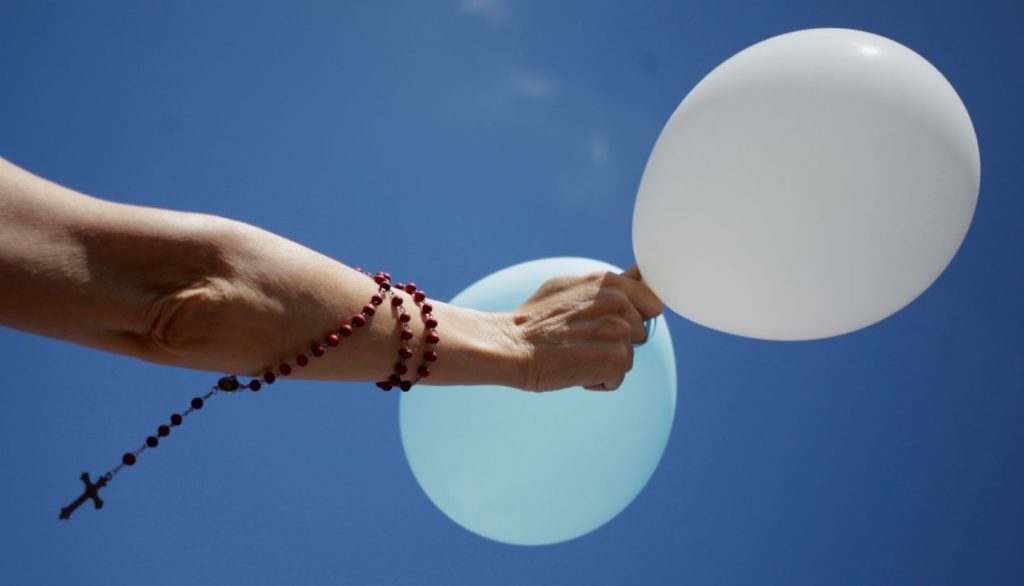Each year the Church in the United States celebrates Respect for Human Life Month. The first Sunday of the month is the specially designated day. This year, 2021, it is October 3. On this occasion the date is framed in the Year of St. Joseph, which provides an opportunity to highlight his example as protector and defender of human life, a gift of God. Joseph F. Naumann, Archbishop of Kansas City and Chairman of the Committee on Pro-Life Activities of the North American Conference of Catholic Bishops, said: "Like St. Joseph, we are also called to care for those whom God has entrusted to our care, especially mothers and vulnerable children. We can follow in St. Joseph's footsteps as a protector, advocating against the funding of abortions that target the lives of millions of children and their mothers."
That call becomes even more relevant in the wake of the Women's Health Protection Act (WHPA) bill that passed the House of Representatives on September 24. It is one of the most radical pro-abortion initiatives in history.
The bill is currently being discussed in the Upper House of Congress. The onslaught against life was already seen coming with the current Democratic administration led by President Joe Biden, but it became even more aggressive particularly since the entry into force of the "Heartbeat" law in Texas on September 1 and although it is one of the strictest in the country it is not the only one, since 2011 states and local governments have passed dozens of similar laws limiting or restricting access to voluntary termination of pregnancy.
If passed, the new law would impose free abortion "on demand" at any stage of pregnancy, from conception to before birth, anywhere in the country. The proposal would override existing federal or state laws that prohibit, restrict or limit abortion. This law would take precedence over conscientious objection and religious freedom laws, which protect, among others, health care professionals, providers and religious associations.
The WHPA defines abortion by giving it meanings beyond its boundaries. In addition to the termination of pregnancy, the definition of abortion extends it to any medical or non-medical service related to and in conjunction with abortion, before, during and after the abortion, (Already in most public hospitals in the country one of the "services" that doctors and nurses offer to all mothers upon delivery is the option of permanent birth control procedures). The draft bill also references and includes health services extended to the "LGBTQ community" to include sex reassignment treatment.
To justify the House of Representatives' fallacious argument, the law modifies at will a series of concepts that from a legal and bioethical point of view are absurd or simple ill-constructed chimeras, since it elevates abortion to the rank of "constitutional right" and "fundamental human right". According to the Lower House, "abortion services are essential to health care and access to such services is fundamental." It also adds that "reproductive justice is a human right that will be achieved when all people can make decisions about their bodies, health and sexuality with dignity and self-determination".
The initiative notes that reproductive health restrictions perpetuate systems of oppression, including white supremacy and anti-black racism, a legacy that "has manifested itself in slavery, experimentation and forced sterilizations. That legacy of restrictions is not a thing of the dark past, but is evident in reproductive health restrictions" today as they constitute a "mechanism of gender oppression" rooted in "misogyny."
The conceptual errors of the bill are visible even to non-experts. It is not understood why killing a defenseless human being in the womb is a "constitutional, fundamental human right" or a "mechanism of oppression". In this regard, the Texas bishops have responded since the September 1 enactment of the Heartbeat Law that abortion is not a human right because it is in itself a rejection of the fundamental human right to life.
Abortion, they added, also does not constitute "health care" or help for women because it is not a gender issue: "Abortion is not and never will be the answer, because it is taking the life of an innocent human being. In that sense, Archbishop Naumann pointed out that this obscure initiative of the House of Representatives is based on a false and desperate narrative. It speaks of abortion as if it were the moral equivalent of the removal of an unwanted, unwanted, unwanted or unhealthy appendage. Moreover, "it is a proposal radically opposed to the sentiment of Americans. As a nation built on the recognition that every human being is endowed by his or her Creator with the inalienable rights to life, liberty and the pursuit of happiness, this bill is a complete injustice," Bishop Naumann said.
The day and month dedicated to the protection of life is an opportunity to make Catholics aware of the dangers that this obscure bill would bring. It will also provide an opportunity for parishioners across the country to learn about, approach and support the various institutions promoted by the Church to protect human life, from pro-life groups, support organizations for expectant mothers, to hospitals or care centers where mothers can find a truly integral response to the gift of life. In this task, one of the most powerful intercessors is undoubtedly St. Joseph.





 Beats the heart in Texas
Beats the heart in Texas





